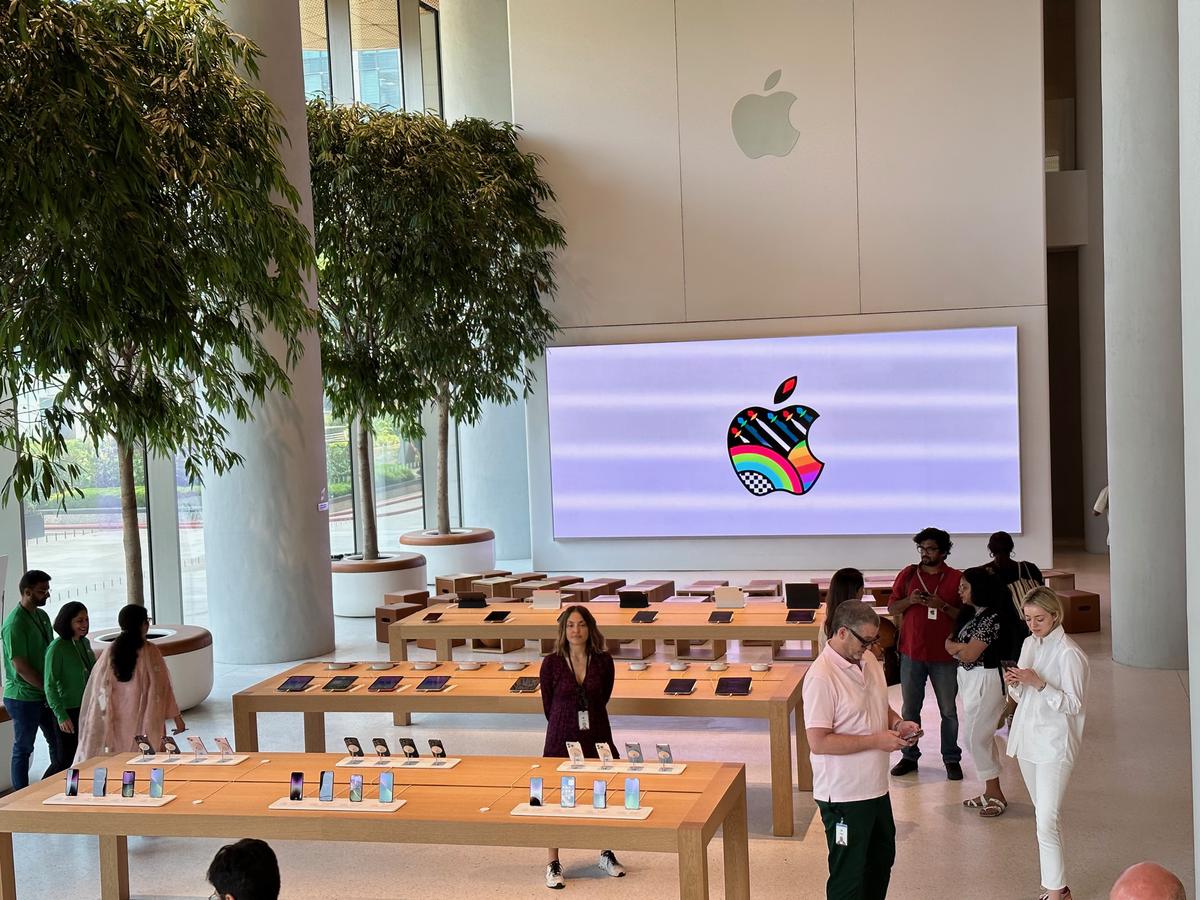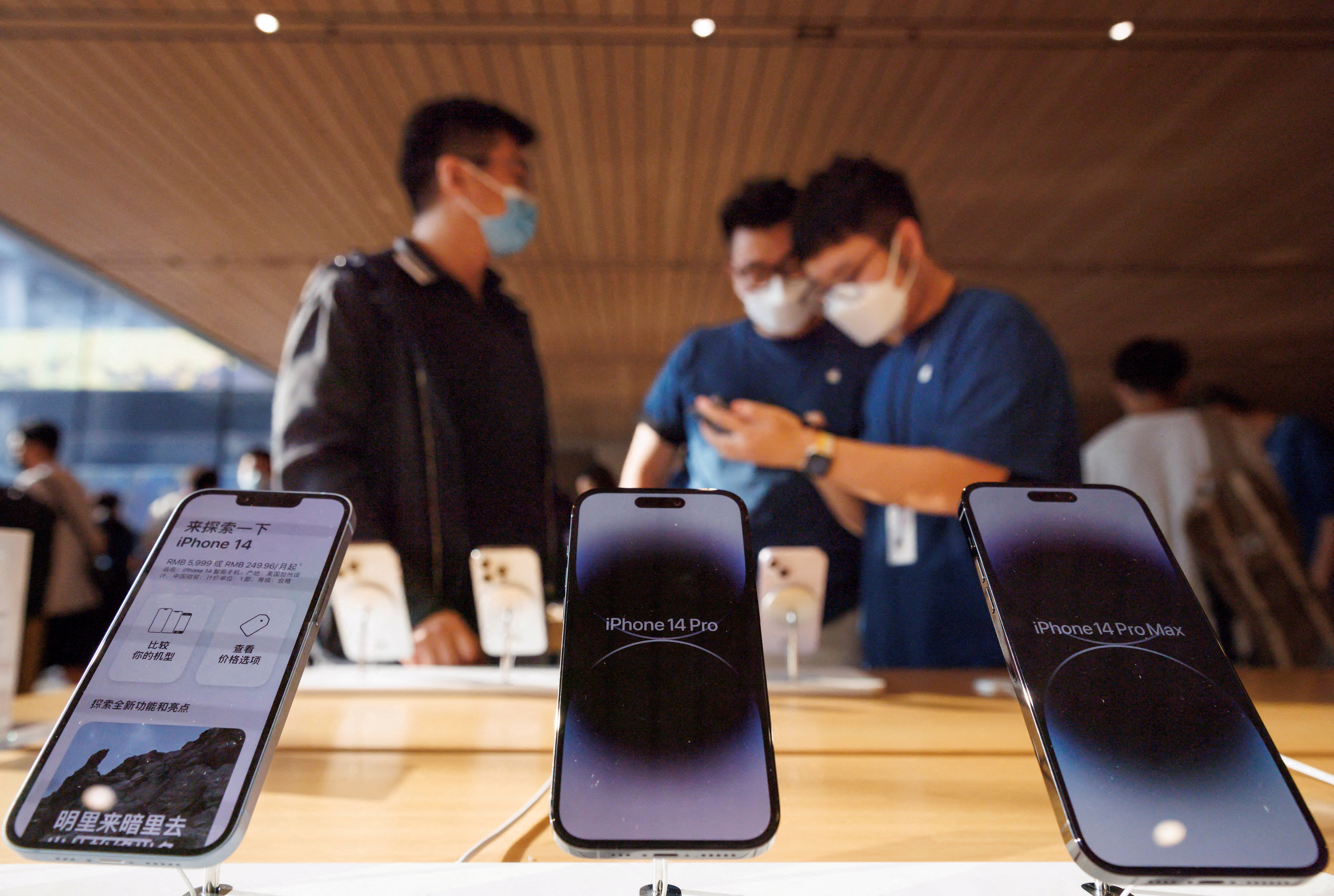Over 1.5 Million iPhones Sold: Festive Season Success 2023

Over 1.5 Million iPhones Sold: Festive Season Success 2023
The festive season is a time of joy, celebration, and gifting. It’s also a period when consumer electronics, particularly smartphones, see a surge in sales. In a remarkable feat, Apple Inc. has managed to sell over 1.5 million iPhones in the first week of the festive season.
This milestone is not just a testament to the enduring popularity of the iPhone but also reflects the brand’s unwavering appeal among consumers worldwide. In this article, we will delve into the details of this impressive achievement and its implications for both Apple and the wider tech industry.

According to Counterpoint Research, more than 1.5 million iPhones were sold in the first week of the holiday season sales, which began on October 8. This helped drive a market rise of 25% y-o-y in value terms across the board.
Sales of all iPhone models, including the iPhone 15, iPhone 14, iPhone 13, and iPhone 12, increased. In terms of value and volume, additional brands like Samsung and Xiaomi also aided in the increase during the first week.
Samsung retained its top spot in the quarter, according to brand performance, with a market share of 18% and a shipment of 7.9 million devices. With 7.6 million devices shipped, Xiaomi moved up to second place, thanks to the introduction of its reasonably priced 5G models.

Vivo dropped to third place with 7.2 million devices shipped, and realme and OPPO (excluding OnePlus) finished the top five with 5.8 million and 4.4 million units, respectively.
Apple’s iPhone has long been a symbol of innovation and excellence in the smartphone industry. Since the launch of the first iPhone in 2007, Apple has consistently pushed the boundaries of technology, design, and user experience.
The iPhone’s sleek design, cutting-edge features, and the seamless integration of hardware and software have made it a favorite among consumers across the globe.

The enduring popularity of the iPhone can be attributed to several factors:
- Ecosystem: Apple’s ecosystem is a key selling point. Customers who own an iPhone often invest in other Apple products like iPads, MacBooks, and Apple Watches, creating a seamless and interconnected experience.
- Quality and Reliability: iPhones are known for their build quality and reliability. They are designed to last, and Apple’s commitment to regular software updates ensures that older iPhones remain functional and up-to-date.
- App Store: The App Store offers a vast array of high-quality apps and services, making the iPhone a versatile tool for work, entertainment, and productivity.
- Brand Loyalty: Apple has cultivated a loyal fan base that eagerly anticipates new releases. Many users stick with the brand throughout their smartphone journey, upgrading to the latest model each year or two.

The festive season, which typically spans from late September to early January, is a crucial period for smartphone manufacturers. During this time, consumers are more likely to make significant purchases, including smartphones, as they seek to take advantage of various promotions and discounts offered by retailers.
The festive season also aligns with the release of Apple’s latest iPhone models, generating significant buzz and demand. Apple’s marketing strategies, including product launches, partnerships, and advertising campaigns, are strategically timed to coincide with this period.
The sale of over 1.5 million iPhones in the first week of the festive season is a remarkable achievement for Apple. While Apple typically experiences strong sales during this period, surpassing the 1.5 million mark within a week is a noteworthy milestone.

These sales figures can be attributed to several factors:
- iPhone 13 Series: The iPhone 13 series, launched just before the festive season, garnered significant attention. With improvements in camera technology, performance, and battery life, the latest iPhones proved to be highly attractive to both existing iPhone users and those looking to switch from other brands.
- Trade-in Programs: Apple’s trade-in programs, which allow customers to exchange their older iPhones for a discount on the new models, encouraged many users to upgrade their devices.
- Exclusive Deals: Various retailers and carriers offered exclusive deals and incentives to attract customers, further boosting iPhone sales.
- Pent-Up Demand: The COVID-19 pandemic disrupted the supply chain and delayed some consumers’ smartphone upgrades. As restrictions eased, there was a pent-up demand for new devices, and many chose the festive season as the opportune time to make their purchase.

Apple’s success in selling over 1.5 million iPhones in the first week of the festive season has several implications:
- Revenue Boost: This surge in sales will undoubtedly have a significant positive impact on Apple’s revenue, strengthening its position as one of the world’s most valuable technology companies.
- Brand Image: Apple’s ability to consistently deliver innovative products that resonate with consumers reinforces its brand image as a leader in the tech industry.
- Competitive Pressure: Apple’s success puts pressure on its competitors to step up their game in terms of innovation, marketing, and user experience.
- Supply Chain Challenges: Meeting such high demand in a short time frame can strain Apple’s supply chain, highlighting the ongoing challenges faced by the tech industry in sourcing components.
Apple’s achievement of selling over 1.5 million iPhones in the first week of the festive season is a testament to the enduring popularity of the iPhone and the company’s ability to generate excitement and demand for its products.

As the festive season continues, it will be interesting to see how Apple’s sales figures evolve and how this success shapes the future of the tech industry. One thing is clear: the iPhone’s allure remains as strong as ever, making it a prominent player in the global smartphone market.



